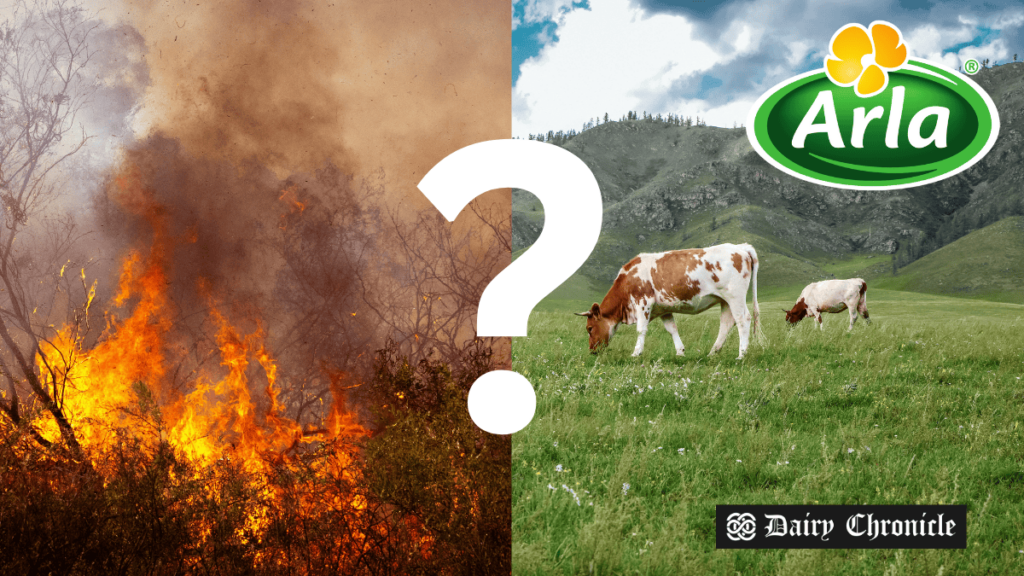Arla, Denmark’s leading dairy producer and the world’s fifth-largest, is facing criticism for allegedly misleading consumers about its sustainability efforts. A new report by the Changing Markets Foundation highlights Arla’s greenwashing tactics, weak climate initiatives, and lobbying efforts that derail climate policies. The report accuses Arla of obscuring its true methane emissions while pushing false solutions to maintain its industrial dairy model.
Denmark-based dairy giant Arla, the world’s fifth-largest dairy producer, is under scrutiny following a damning report by the Changing Markets Foundation. The report alleges that Arla engages in greenwashing, misleading consumers about its sustainability efforts while actively lobbying against climate regulations.
Methane Emissions and Greenwashing Allegations
The report states that 96% of Arla’s emissions stem from methane, surpassing the agricultural emissions of countries like the Netherlands or Ukraine. Despite pledging to reach net-zero emissions by 2050, the company’s strategies are criticized for lacking credibility and relying on unproven technologies.
Arla’s FarmAhead initiative, which aims to measure farm-level carbon footprints and incentivize emission reductions, has faced backlash from small and medium-sized farmers who claim the system pressures them toward intensification rather than sustainable practices. The company also promotes biogas from manure as a key sustainability solution, yet the report estimates this offsets only 2.6% of emissions per kilogram of milk, with a maximum potential of 15%.
Lobbying and Policy Influence
The report highlights Arla’s influence in derailing climate policies within the European Union. It states that the company has worked against the inclusion of agriculture in the EU Methane Strategy and has lobbied to block plant-based alternatives from accessing school food programs.
Arla has also been accused of spending more on marketing than on sustainability initiatives, with an estimated €240 million allocated to advertising compared to €200 million invested in environmental efforts. The company’s previous marketing campaigns, such as its “Net Zero” milk advertisements in Sweden, Denmark, and the Netherlands, were criticized for falsely implying carbon neutrality, leading to legal action in Sweden.
Recommendations for Climate Action
The report calls on Arla to align its net-zero targets with UN recommendations, set specific methane reduction goals, and establish transparent emission reporting with third-party verification. It also urges the company to reduce livestock numbers, expand its plant-based offerings, and disclose lobbying expenditures to enhance accountability.
As climate concerns mount, Arla’s response to these allegations will play a crucial role in shaping its credibility in the global dairy industry.



